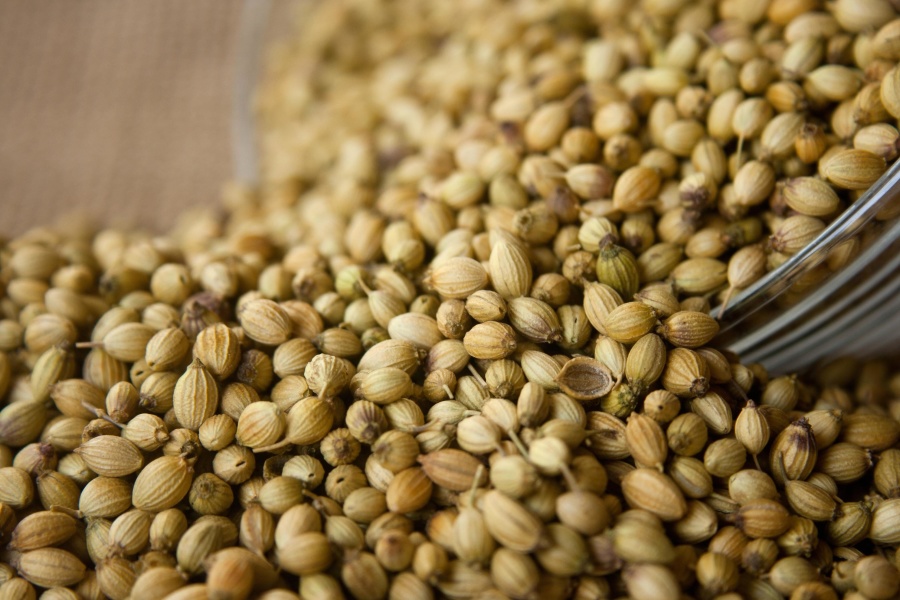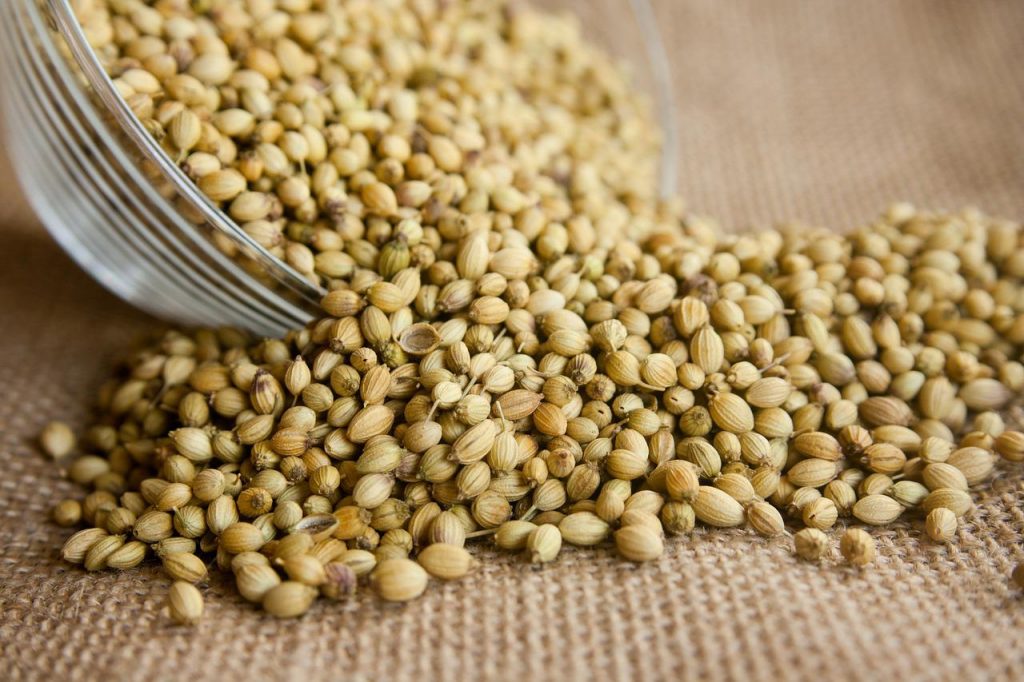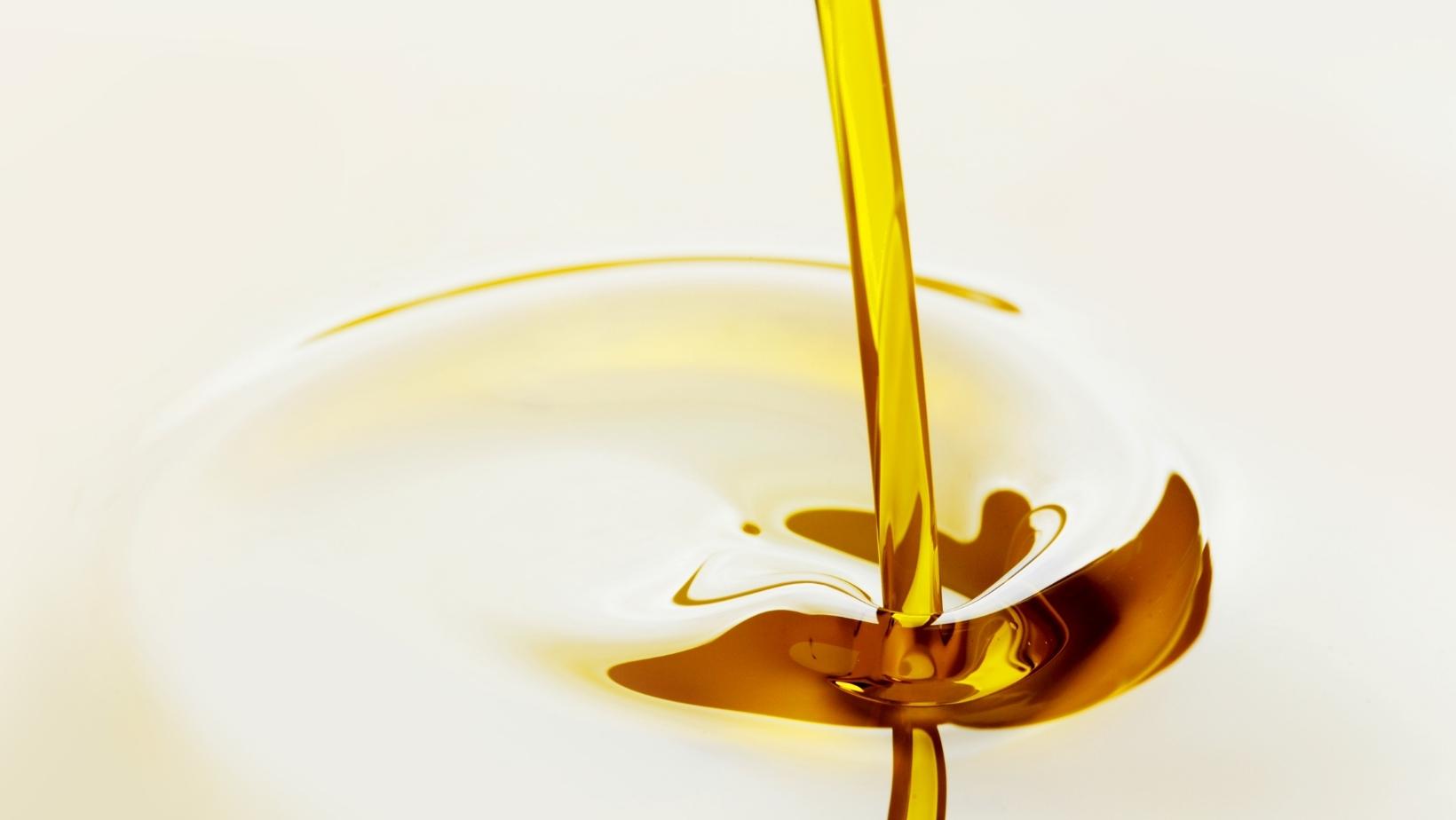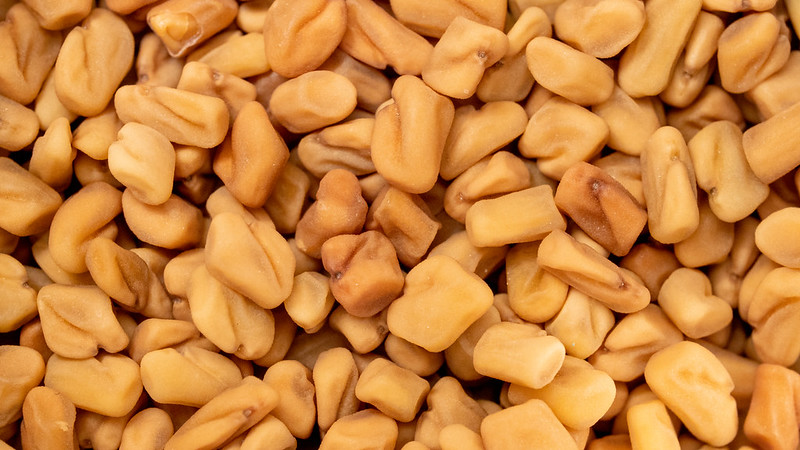Coriander is a common spice to flavor food around the world. But did you know the health benefits of Coriander seeds yet?
If no, read on to know how coriander is a panacea for your health.
Coriander or dhania belongs to the Coriandrum sativum plant. The leaves of coriander are well-known as cilantro.
Coriander seeds when dries up on the plant, it is then grounded to prepare coriander powder.
Nutritional Value of Coriander Seeds
For centuries, coriander is being added to foods and Ayurveda medicines. This aromatic spice is high in fiber content (only 100g of coriander seeds contain 41.9g of fiber). They are a great source of antioxidants, vitamins C, B, K, iron, calcium, etc.
Coriander is also rich in micronutrients such as zinc, manganese, magnesium, and copper.
Coriander has a characteristic scent. It is due to the presence of potent antioxidants and volatile oils (oleic acid, alpha-pinene, linoleic acid, and others).
Also Read: Keto Mocktails: 10 Low-Carb Recipes for Guilt-Free Happy Hour Indulgence
Coriander seeds have amazing nutritional value. But it is advisable to take it in good amount to experience the benefits. Here’s how adding coriander seeds to your curries, salsas, and salads benefits your health:

1. Rich In Potent Antioxidants
Coriander seeds are full of powerful antioxidants. These antioxidants fight free radicals and prevent cell damage. Free radicals are the common cause of cancer, heart disease, stress, and more.
So, Coriander seeds help combat free radicals to lower the risk of cancer and delay the signs of aging.
2. Good Source of Vitamin K
Vitamin K is a vital nutrient for the human body. It helps with the formation of blood clots and reduces the risk of heart disease.
Moreover, vitamin K is an important vitamin for the development of bones. It also aids in repairing bones and preventing age-related joint problems, particularly osteoporosis.
3. Prevents Heart Disease
High blood pressure and high bad cholesterol levels are reasons for several heart diseases. Coriander is a diuretic herb. It flushes out extra sodium to keep the blood pressure levels in control.
Not only that, studies have shown that regular consumption of Coriander seeds reduces the risk of arteriosclerosis. It lowers bad cholesterol, a common cause of heart attack.
4. Reduces Inflammation
Coriander is an anti-inflammatory spice. It helps reduces inflammations in the body, caused by the immune response to foreign invasion. Untreated inflammation can lead to heart disease and cancer.
Thus, adding Coriander seeds to your cuisines slows down the growth of cancerous cells in your body by reducing inflammation.
5. Helps Control Diabetes
Coriander (Dhania) seedsor powder can keep your diabetes in check. Rich in dietary fiber, coriander seeds regulate your blood glucose levels.
In 2008, in a study performed on diabetic rats, the coriander lowered their blood glucose levels. It also boosted insulin production from their pancreas.
6. Treats Skin Conditions
Coriander seeds contain active antioxidants. They boost skin health by fighting free radicals and delaying the signs of aging. Also, coriander water improves several skin conditions such as psoriasis, eczema, and rosacea.
7. Strengthen Hair
Coriander (Dhania) seeds water improves hair health. It is enriched with vital minerals, protein, and healthy fats (volatile oils).
To boost hair strength and thickness you can add coriander seeds can to your food. Or, you can apply coriander water combined with an organic hair wash for better results.
Also Read: Enhance Your Beauty Regime: 5 Benefits of Gulkand for Hair and Skin
8. Helps In Digestion
Coriander seeds and leaves are being used in Ayurveda medicine to treat digestive issues for ages.
They are rich in dietary fiber and antioxidants. Adding coriander seeds to your daily diet boosts digestion, and improves the absorption of nutrients. It also prevents several stomach problems like diarrhea and constipation.
Also, Coriander seeds are rich in fatty acids and volatile oils. They are responsible for the digestive and anti-flatulent properties found in them.
9. Immune-Boosting Herb
Coriander seeds are a rich source of vitamin C, an essential nutrient with immune-boosting power. It helps strengthen your immunity against foreign invasions and infections.
10. Helps With Weight Loss
Coriander (Dhaniya) seeds are fiber-packed spices. They boost your metabolism, which is helpful in weight loss, particularly in aged people. Moreover, the B vitamins in coriander are a bonus to your weight loss diet.
Benefits of Coriander Seeds Water: How to Make and Drink for Improved Health
According to Ayurveda, coriander seeds (also known as dhania) have various health benefits and can help in balancing the three doshas (Vata, Pitta, Kapha) in the body. Drinking coriander seeds water is a simple way to consume the medicinal properties of coriander seeds. Here’s how to make and drink coriander seeds water:
How to make coriander seeds water:
- Take two tablespoons of coriander seeds and wash them thoroughly with water.
- Crush the coriander seeds coarsely using a mortar and pestle or a rolling pin.
- Add the crushed coriander seeds to a liter of water and bring it to a boil.
- Reduce the heat and let the water simmer for about 15-20 minutes.
- Turn off the heat and let the water cool down to room temperature.
- Strain the water and discard the seeds.
How to drink coriander seeds water:
- Drink a glass of coriander seeds water on an empty stomach in the morning for maximum benefits.
- You can also drink coriander seeds water throughout the day as a refreshing beverage.
- You can add a teaspoon of honey or a few drops of lemon juice to enhance the taste.
Also read: Exploring the Potential Benefits of Jeera Water for Weight Loss
Benefits of coriander (Dhaniya) seeds water according to Ayurveda:
- Improves digestion: Coriander seeds are known to aid digestion and relieve digestive issues like bloating, gas, and constipation.
- Reduces inflammation: Coriander seeds have anti-inflammatory properties that can help reduce inflammation in the body.
- Promotes healthy skin: Coriander seeds contain antioxidants that can help prevent skin damage and keep your skin healthy.
- Regulates blood sugar: Coriander seeds have been shown to lower blood sugar levels in people with diabetes.
- Supports kidney function: Coriander seeds have diuretic properties that can help improve kidney function and flush out toxins from the body.
However, it’s important to note that coriander seed water should not be considered as a replacement for any medical treatment. If you have any medical conditions, it’s best to consult your doctor before consuming coriander seeds water or any other home remedies.
What are the uses of Coriander Seeds?
Dhaniya Seeds or Coriander seeds in English have a wide range of culinary and medicinal uses. Here are some common uses of coriander seeds:
1. Spice and Flavoring: Coriander seeds are commonly used as a spice and flavoring agent in various cuisines. They have a warm, citrusy flavor with hints of nuttiness, making them a versatile addition to many dishes. Ground coriander seeds are often used in spice blends, curry powders, marinades, and rubs for meats and vegetables.
2. Curry Powder and Masalas: Coriander seeds are a key ingredient in curry powder, which is a blend of spices used in Indian and South Asian cuisine. They are also used in masalas, which are spice mixes used to season curries, stews, and other savory dishes.
3. Pickling and Preserving: Coriander seeds are commonly used in pickling and preserving fruits and vegetables. They add a unique flavor and help enhance the preservation process.
4. Baking: Ground coriander seeds can be used in baking to add a warm, aromatic flavor to bread, cakes, cookies, and pastries. They pair well with citrus flavors and are often used in recipes that call for lemon or orange zest.
5. Tea Infusions: Coriander seeds can be infused in hot water to make a soothing herbal tea. The tea is believed to have digestive properties and is commonly consumed after meals to aid in digestion.
6. Medicinal Uses: In traditional medicine, coriander seeds have been used for their potential medicinal properties. They are believed to have anti-inflammatory, antimicrobial, and antioxidant properties. Coriander seed extracts and oils are sometimes used in herbal remedies and natural skincare products.
7. Herbal Remedies: Coriander seeds have been used in traditional herbal remedies for various ailments. They are believed to aid digestion, relieve gas and bloating, promote healthy sleep, and support overall wellness. However, it’s important to note that scientific research on the efficacy of these uses is limited, and consulting with a healthcare professional is advisable for specific health concerns.
8. Aromatherapy: Coriander seed essential oil is used in aromatherapy for its calming and uplifting properties. It is often added to diffusers or used in massage oils to promote relaxation and relieve stress.
Coriander seeds are a versatile ingredient that adds depth of flavor and aroma to a wide variety of dishes. Whether used in savory recipes, pickling, baking, or herbal infusions, coriander seeds offer a unique taste and potential health benefits.
Also Read: Unveiling the Secrets of Sleep: 5 Holy Basil & Skullcap Herbal Tea Blends for Serene Slumber
is Coriander Good for you? 5 Health Benefits of Coriander (Dhaniya)
Coriander, scientifically known as Coriandrum sativum, is an herb that belongs to the Apiaceae family. It is native to regions of Southern Europe, Northern Africa, and Western Asia, but is now cultivated and widely used across the globe. The herb has a distinct flavor that is often described as citrusy, slightly sweet, and peppery. Both the leaves and seeds of the coriander plant are used in culinary preparations.
Culinary Uses:
Coriander leaves, also referred to as cilantro, are a popular herb in various cuisines, including Indian, Mexican, Middle Eastern, and Southeast Asian. The fresh leaves are commonly used as a garnish, added to salads, salsas, and guacamole, or used to enhance the flavor of curries, soups, and stews. The leaves can also be used to make pesto or blended into sauces and dressings.
Coriander seeds are dried and used as a spice. They have a warm, slightly nutty flavor with hints of citrus. The seeds are commonly ground into a powder and added to spice blends such as curry powder, garam masala, and pickling spices. Whole coriander seeds are also used in pickling, marinades, and baking, particularly in bread and pastry recipes.
Medicinal and Traditional Uses:
Coriander has a long history of use in traditional medicine for its potential health benefits. In various cultures, it has been used to aid digestion, alleviate stomach discomfort, and even as a natural remedy for anxiety and insomnia. However, it’s important to note that scientific research is limited in these areas, and further studies are needed to confirm these traditional uses.
Storage and Selection:
When purchasing coriander, look for fresh, vibrant leaves that are deep green in color. Avoid wilted or yellowing leaves. If buying coriander seeds, choose whole seeds that are dry and have a uniform brown color. It’s best to store fresh coriander leaves by placing them in a container with a little water, covering them loosely with a plastic bag, and storing them in the refrigerator. Coriander seeds can be stored in an airtight container in a cool, dark place for several months.
5 Health Benefits of Coriander (Dhaniya)
Coriander, also known as cilantro or Chinese parsley, is a popular herb used in various cuisines around the world. Not only does it add a burst of flavor to dishes, but coriander also offers several health benefits. From improving digestion to providing essential nutrients, let’s explore five reasons why you should consider adding coriander to your diet.
1. Rich in Nutrients
Coriander is a nutrient-dense herb that provides an array of essential vitamins and minerals. Just a small amount of coriander leaves can contribute to your daily nutritional needs. It contains vitamins A, C, and K, along with folate and potassium. Additionally, coriander leaves are a good source of antioxidants, which help protect your body against damage from harmful free radicals.
2. Aids Digestion
Coriander has long been recognized for its digestive benefits. It contains natural compounds that promote healthy digestion by stimulating the production of digestive enzymes. These enzymes help break down food and facilitate nutrient absorption. Moreover, coriander has carminative properties, meaning it can reduce gas and bloating. Including coriander in your meals can help alleviate indigestion and promote a healthy digestive system.
3. Supports Heart Health
Maintaining a healthy heart is crucial for overall well-being, and coriander can contribute to heart health in several ways. Firstly, it contains antioxidants that help reduce oxidative stress and prevent damage to the heart. Secondly, coriander has been found to lower cholesterol levels, particularly LDL (bad) cholesterol. By reducing LDL cholesterol, coriander may help lower the risk of heart disease and maintain a healthy cardiovascular system.
4. Anti-Inflammatory Properties
Inflammation is a natural response by the body to injury or illness, but chronic inflammation can lead to various health problems. Coriander possesses anti-inflammatory properties that can help reduce inflammation in the body. Some studies suggest that specific compounds found in coriander may help alleviate symptoms of inflammatory conditions like arthritis. Adding coriander to your diet or incorporating it into topical applications may help reduce inflammation and provide relief.
5. Potential Blood Sugar Regulation
For individuals with diabetes or those concerned about blood sugar levels, coriander may offer some benefits. Some research suggests that coriander may help regulate blood sugar by increasing insulin release and enhancing insulin activity. However, more studies are needed to establish a definitive link. If you have diabetes or prediabetes, it’s important to consult with a healthcare professional to determine how coriander can fit into your overall diabetes management plan.
Incorporating Coriander (Dhania) into Your Diet
Now that you’re aware of the health benefits of coriander, you may be wondering how to include it in your diet. Coriander leaves can be used fresh as a garnish in salads, soups, and curries, or blended into sauces and chutneys for an extra burst of flavor. Coriander seeds are often used in spice blends and can be ground and added to various dishes. Experimenting with coriander in your recipes can introduce new flavors and provide a nutritional boost.
It is more than just a culinary herb; it offers an array of health benefits as well. From providing essential nutrients to aiding digestion and promoting heart health, coriander has much to offer. Its anti-inflammatory properties and potential blood sugar regulation properties further enhance its appeal. So, next time you prepare a meal, consider incorporating coriander to not only enhance the taste but also to reap the numerous health benefits it provides.
Also Read: Keto Apple Cider Vinegar (ACV) Gummies: Benefits, Side Effects, And Commonly Asked Questions
Coriander (Dhaniya) Powder: 7 Health Benefits and How to Include it in your diet.
Coriander powder, made from ground coriander seeds, offers several benefits. Here are some potential benefits of coriander powder:
1. Digestive Aid: Coriander powder has been traditionally used as a digestive aid. It contains compounds that stimulate the production of digestive enzymes, promoting healthy digestion and reducing symptoms like bloating, gas, and indigestion.
2. Anti-Inflammatory Properties: Coriander powder possesses anti-inflammatory properties that may help reduce inflammation in the body. It contains certain bioactive compounds that have been shown to inhibit the production of inflammatory markers, potentially providing relief from inflammatory conditions.
3. Antioxidant Activity: Coriander powder is rich in antioxidants, which help protect the body against damage caused by free radicals. Antioxidants neutralize these harmful molecules, reducing oxidative stress and potentially lowering the risk of chronic diseases.
4. Blood Sugar Regulation: Some studies suggest that coriander powder may help regulate blood sugar levels. It may increase insulin release and enhance insulin activity, potentially aiding in glucose metabolism and maintaining balanced blood sugar levels.
5. Cholesterol Management: Coriander powder has been studied for its potential cholesterol-lowering effects. It may help reduce levels of LDL (bad) cholesterol while increasing levels of HDL (good) cholesterol. This can contribute to a healthier lipid profile and support cardiovascular health.
6. Diuretic Properties: Coriander powder has mild diuretic properties, which means it may promote the production of urine and help eliminate excess water and toxins from the body. This can be beneficial for individuals with edema or fluid retention.
7. Antibacterial and Antifungal Activity: The essential oils present in coriander powder have been found to exhibit antibacterial and antifungal properties. They may help inhibit the growth of certain harmful bacteria and fungi, potentially aiding in the prevention of infections.
Incorporating Coriander Powder:
Coriander powder is a versatile spice that can be easily incorporated into your cooking. It adds a warm, citrusy flavor to various dishes, including curries, soups, stews, marinades, and spice blends. You can sprinkle it on roasted vegetables, use it as a seasoning for meats or seafood, or even add it to baked goods for a unique twist. It pairs well with other spices like cumin, turmeric, and chili powder.
Note: It’s important to remember that while coriander powder may offer potential benefits, individual results may vary. It’s always a good idea to consult with a healthcare professional or a registered dietitian before making significant changes to your diet or using coriander powder for specific health purposes.
Overall, coriander powder not only enhances the flavor of your dishes but also offers potential health benefits, particularly in digestion, inflammation, blood sugar regulation, cholesterol management, and as an antioxidant. Incorporating this spice into your culinary repertoire can provide both taste and potential wellness advantages.
7 Benefits of Coriander Tea and How to make it
Coriander tea, made by infusing coriander seeds in hot water, offers a range of potential health benefits. Here are some of the benefits associated with coriander tea:
1. Digestive Aid: Coriander tea is often used as a natural remedy for digestive issues. It can help stimulate digestion, reduce bloating, and relieve gas. The compounds present in coriander seeds may promote the secretion of digestive enzymes, supporting overall digestive health.
2. Anti-Inflammatory Properties: Coriander tea possesses anti-inflammatory properties that may help reduce inflammation in the body. It contains bioactive compounds like flavonoids and phenolic compounds that have been found to inhibit the production of inflammatory markers.
3. Diuretic Effects: Drinking coriander tea may have diuretic effects, helping to increase urine production and eliminate excess fluids from the body. This can be beneficial for individuals experiencing water retention or edema.
4. Antioxidant Activity: Coriander seeds are rich in antioxidants, and when brewed into tea, they release these beneficial compounds. Antioxidants help neutralize harmful free radicals and protect the body against oxidative stress, potentially reducing the risk of chronic diseases.
5. Blood Sugar Regulation: Some studies suggest that coriander tea may help regulate blood sugar levels. It may have hypoglycemic properties, which can support healthy glucose metabolism and contribute to balanced blood sugar levels.
6. Sleep Aid and Stress Relief: Coriander tea is often used as a natural remedy to promote relaxation, relieve stress, and improve sleep quality. It may have mild sedative effects, helping to calm the mind and promote restful sleep.
7. Detoxification Support: Coriander tea is believed to have detoxifying properties, assisting the body in eliminating toxins. It may help support liver function and aid in the removal of waste products from the body.
Preparing Coriander Tea:
To make coriander tea, follow these simple steps:
- Add one teaspoon of crushed coriander seeds to a cup of boiling water.
- Let it steep for about 10 minutes.
- Strain the tea to remove the seeds.
- You can enjoy it warm or add ice for a refreshing iced version.
- Optionally, you may add honey or lemon for flavor.
Note: It’s important to remember that while coriander tea may offer potential benefits, individual results may vary. Additionally, if you have any underlying health conditions or are taking medications, it’s advisable to consult with a healthcare professional before incorporating coriander tea into your routine.
Coriander tea is a flavorful and natural way to potentially support digestion, reduce inflammation, regulate blood sugar levels, and promote relaxation. Adding this herbal tea to your daily routine may provide a refreshing and healthful beverage option.
Final Verdict
Coriander and Coriander Seeds seeds are a safe and natural spice for your curies with many health benefits. Make sure to add in moderation and avoid it in case of an allergic reaction.














